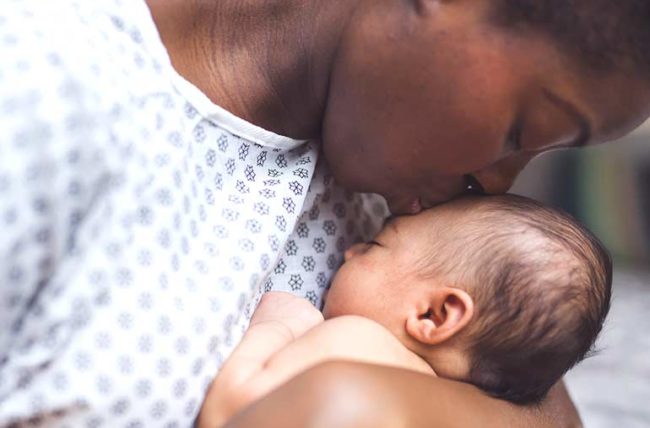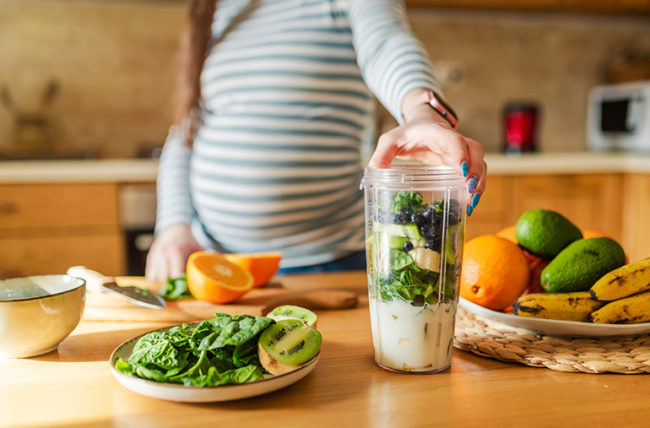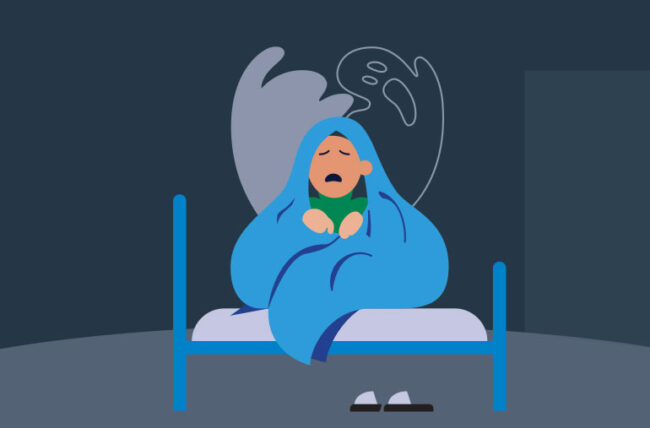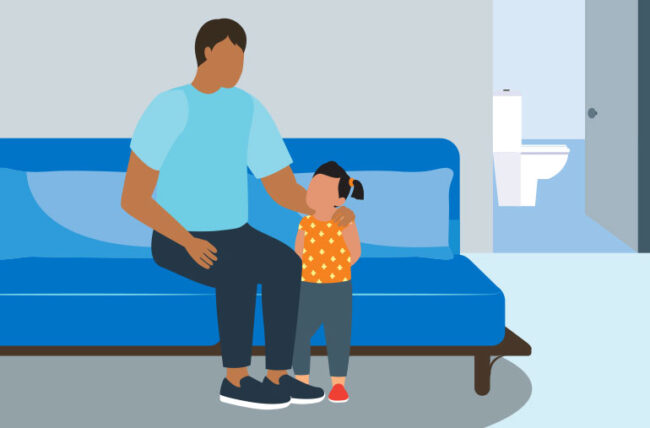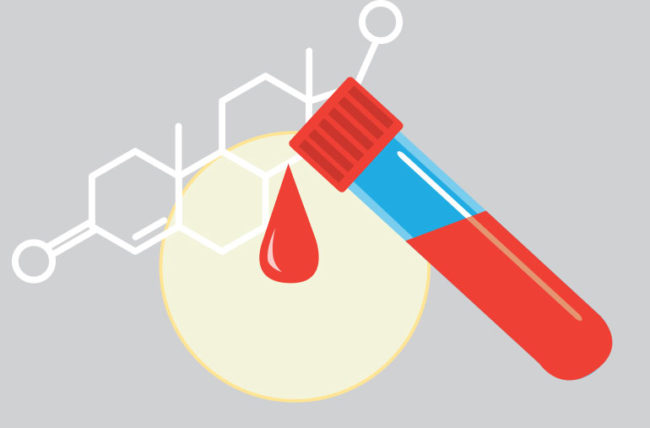It’s 40(ish). Finally, you have your bundle of joy in your arms. Now what? That’s probably the most important question in your mind. You can take a deep breathe.
You will notice many changes in the weeks, months and days following your delivery. You may have expected to be exhausted, to feed your baby at night and to change diapers every day. You might not have expected how your body will react and heal after giving birth. Your body is also undergoing a significant adjustment as you welcome your baby into the world.
Elizabeth Beach, CNM (midwife) gives us an overview of the six weeks following your delivery and what you can expect.
How soon after birth can you heal?
Um, 18 years? But seriously. It takes approximately six weeks for the body to heal completely after giving birth. While we can give you a general idea of what your body will go through during this period, each person’s journey is unique. Have you had a C section? You will see a different recovery.
What to expect every week following a vaginal delivery:
Postpartum Recovery Timeline
1-3 days postpartum
“Your recovery begins in the same delivery room as you,” Beach says. Your nurses will check you vitals to make sure that you are stable and then transfer you to the postpartum unit.
Your body will start a healing process from the moment you give birth until the end of the six week period.
Hospital care
You will spend your first few days in hospital unless you opt for a homebirth. The average stay is between 24 and 48 hrs after a vaginal birth. Beach explains that once you are in the postpartum ward, your vitals and bleeding will still be checked to ensure you are healthy.
If you decide to breastfeed your baby (chestfeed it) at home, this is a good opportunity to ask for advice from a lactation specialist or nurse.
Beach says that this can sometimes take a bit longer, if you are waiting for additional tests or lab work. It usually occurs if you need to have extra tests performed or if your child has Jaundice.
Cramping
This is normal and nothing to worry about. Your uterus is trying to shrink back to its original size.
Beach: “Most people believe that the process is over once the baby and placenta are out. Your body is still trying to stop the bleeding. You can feel your uterus cramping.
If the cramping persists, you may want to try using a heating pad. Your healthcare provider may have prescribed you some pain relievers to help manage the pain if the pain is too intense. These are usually ibuprofen and Tylenol (r).
The 1-2 week period
It’s important to take it slowly during the first two weeks following birth. From feeding your child to adjusting to your new body, it is crucial that you do not rush it into healing. You may be asked to come in for a check-in every two or three weeks, depending on the advice of your doctor.
Breastfeeding (chestfeeding)
You probably have many questions on your mind if you decide to breastfeed. How can I tell if the latch is correct? Is this soreness normal or something else wrong? You don’t have to do breastfeeding alone. Lactation consultants, as well as other breastfeeding mothers are there to support you.
Beach says that your milk may not have arrived when you leave the hospital. It’s a good idea for you to schedule a separate breastfeeding visit in your first week. They can assist with any latching problems and different feed positions .
Whether or not you decide to breastfeed, your body will begin producing milk three to four weeks after birth. You can expect to experience tenderness around your nipple if you choose to breastfeed. However, you can treat this by using nipple lotion after each feeding.
Beach says that if your breasts are sore or painful, or if they appear red (warm to touch), this could indicate mastitis. Talk to your Ob/Gyn if you experience this.
Your milk will naturally dry up if you don’t breastfeed. You can speed this up and feel more comfortable by wearing a tight sportsbra (for as long as possible, and as soon after delivery as possible) and avoiding stimulating your nipples.
Postpartum bleeding and discharge
It’s common to have some vaginal discharge and bleeding during the first two weeks. This is called Lochia. This is the natural process that your body undergoes after giving birth. This should begin to decrease (become less common) by the end of week two.
Beach explains that “your bleeding should start out like an extremely bad period and progress like a regular period.” It should be getting lighter every day.
Beach says that you will also notice a change in your discharge’s color. This is the result of your body going through three stages of lochia to eliminate blood, tissues and mucus.
It could start bright red. It will then progress to a darker, brownish red. Then, it could turn a lighter pink,” she says. It might turn yellowish at some point. All of these are normal.
Vaginal pain
It’s perfectly normal for your body to be a little sore. You can expect a little pain in the area. It will depend on whether you suffered a tear in the vaginal tissue or an episiotomy.
You can reduce some of the pain and discomfort by:
- Wrapped in a towel, apply ice packs to the affected area for 10-20 minutes.
- Sit down with a cushion, pillow or inflatable ring.
- Follow any pain advice your doctor gives you.
It’s important not to overexert during the first or second weeks of recovery. You may want to lose those extra pounds from pregnancy, but the gym can wait. As the pain begins to subside, try taking short, slow walks every day. Beach assures, “You will start feeling better every day.”
Bowel movements
You may also experience a change in the of your bowel movements within the first two weeks following birth. You may experience some difficulty with bowel movements during this period due to the weakness of your pelvic muscle.
Mental health and mood
You feel fine one minute. You feel like you are hit by a tsunami of emotions. This is something that many people go through during the first few weeks following birth. It’s called the “baby-blues.”
If these feelings persist beyond the first two weeks, speak to your doctor to make sure you’re not suffering from postpartum depressive disorder.
Beach says mood swings can be normal during the first 2 to 4 weeks following childbirth because hormones are changing. If you feel depressed or down, or if you are not taking care of your baby or other children and these mood swings continue, you should speak to your doctor.
Physical Status
You should also have lost the majority of your “deliveryweight” after about a week. (We are talking about the weight of your child, placenta, and fluids, not necessarily any additional pounds you might have gained. Your body slowly returns to its pre-pregnancy state. However, this will look different for everyone.
Beach says that weight loss is different for everyone. Some people may see a more visible change – their stomach size will reduce visibly within the first two weeks. Some people look pregnant when they come home from hospital. It really depends.”
Three weeks
You’re now halfway to a complete post-partum recuperation. Wow! You’re almost there.
Strengthen your body
You should be gentle to your body at this time. What’s the good news? The good news is that you can gradually resume your normal activities, but the half-marathon may have to wait.
Beach says that after three weeks you will start to feel more like yourself. It takes your body a little while to heal completely.
Exercise and sex
After three weeks you should feel more energetic. Beach says that you should be able to walk around your block without feeling uncomfortable. Ask your doctor about and what exercises he or she recommends starting with. Your vagina may still be healing and your body is not ready to resume sexual activities yet.
Postpartum bleeding
At this point, a little bleeding is fine but you should notice a decrease in the amount of blood. Beach says that your bleeding should be stopped or has at least slowed down significantly.
6 Weeks
How fast does time go? You’re now six weeks into your treatment and will have the opportunity to check-in with your Ob/Gyn to see how things are going. You’re probably feeling mostly recovered by this time, and your Ob/Gyn provider will ask you about your mental and physical status.
What to expect from your physical condition at six weeks?
- Your bleeding should be down to a few spots at best.
- Your uterus will be the same size as it was prior to your pregnancy.
- If you are a woman, expect to be cleared of sex and exercises.
- If you are breastfeeding, your menstrual periodmay not return for a while.
- As your hormones level out, you may notice a slight loss of hair.
When to visit a doctor
Be sure to listen for any signs your body may be sending before your six-week visit. Beach suggests that you see your doctor if you experience any of these symptoms:
- A yellow or green discharge accompanied by a foul odor.
- A fever over 100.4 degrees Fahrenheit (38 degrees Celsius).
- Tylenol does not work for severe headaches
- Dizziness, nausea or feeling light-headed are all symptoms of dizziness.
- In less than one hour, you can pass blood clots bigger than an egg.
- Inability to control bowel movement, or poop leaking.
- Vision changes
We understand that a “recovery” after giving birth may take up to six weeks. However, your life will not be the same. Spend the first few weeks after giving birth taking care of yourself. Pay attention to your body signals and be patient as you heal. Don’t be afraid to call your doctor if something seems off or odd during your recovery.


